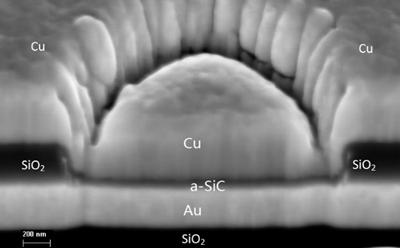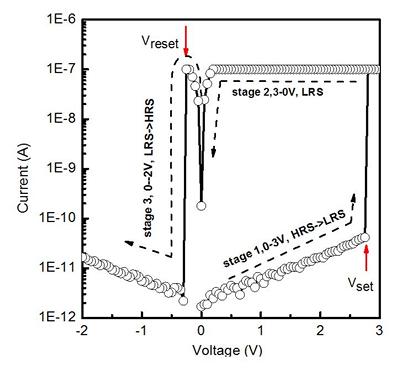Research project: Advanced non-volatile memories based on resistive switching
Resistance non-volatile memory promises great potential to replace conventional flash memories and random access memories in the near future.
Resistance non-volatile memory promises great potential to replace conventional flash memories and random access memories in the near future.

Resistance memories (RMs) usually have simple metal-solid electrolyte-metal stack structures and on/off states are distinguished by stable low/high resistance electrically achieved between the metal electrodes. Key advantages of RMs include low power and fast speed operation, high scalability and CMOS compatibility, making it the most promising candidate for future universal memory. Despite a recent surge of research in this rapidly developing field, clear winners for RMs are yet to be found. Main challenges lie in the development of advanced solid electrolytes and optimization of device structures.

This project aims at development of such resistance memories with innovative solid electrolyte materials and device designs. This interdisciplinary project will involve thin film electronic material development as well as device design, fabrication and testing. The results also underline the studies of relevant resistive switching mechanisms.